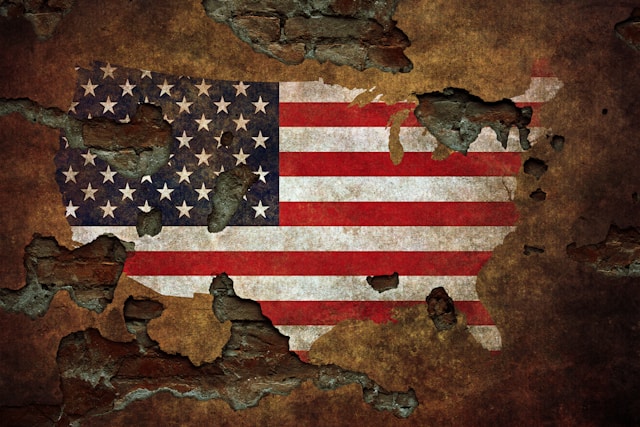
In a rapidly changing world, preserving American history has become crucial. The nation’s past provides a foundation for its identity, offering valuable lessons and fostering a sense of continuity. Understanding history allows citizens to understand the struggles, triumphs, and cultural heritage that shaped the United States. Several dedicated organizations, from large institutions like the Smithsonian to local historical societies, have taken up the mantle of ensuring the preservation and accessibility of the country’s rich and diverse history. These organizations are pivotal in ensuring future generations can learn from and connect with the past.
The Importance of Historic Preservation
First and foremost, historical preservation allows people to maintain a connection to their roots. Through archives, monuments, and museums, individuals can explore the past in meaningful ways. These repositories of history serve as a bridge between generations, fostering an appreciation for the contributions and sacrifices of those who came before. Moreover, historical preservation enables scholars and researchers to dive deeper into the social, political, and cultural developments that have shaped American society.
Furthermore, preserving history is not merely about looking backward but understanding how the past informs the present. For instance, examining the Civil Rights Movement provides insight into social justice efforts. By preserving documentation and artifacts from such significant events, organizations ensure that modern struggles are seen within the broader context of the nation’s history. In this way, historical preservation offers both reflection and perspective.
National Organizations and Their Impact
Across the United States, national organizations have taken on the mission of safeguarding history. The Smithsonian Institution, one of the most renowned in the world, plays a monumental role in preserving American culture. Through its vast collection of artifacts, documents, and art, the Smithsonian ensures that important pieces of American history remain accessible to the public. It also serves as an educational resource, offering programs and exhibitions that inform the public about the nation’s past.
Another key player is the National Park Service (NPS), which manages many historic sites nationwide. The NPS protects natural landscapes and oversees places of historical importance, such as battlefields, presidential homes, and landmarks. By maintaining these sites, the NPS preserves physical spaces and the stories embedded within them. This commitment to preservation and education makes national organizations essential to historical conservation efforts.
The Role of Local Historical Societies
While national organizations often receive the most attention, local historical societies are equally crucial in preserving the fabric of American history. These smaller, community-based groups protect regional and local histories that might otherwise be overlooked. Often staffed by volunteers and funded by donations, local historical societies preserve records, photographs, and objects deeply significant to specific towns or regions.
In addition, these societies often manage smaller museums and historic buildings that provide context to the lives of everyday Americans. They hold events, lectures, and exhibitions to engage their communities, ensuring local history remains vibrant and relevant. Local societies contribute to a fuller, richer understanding of the nation’s diverse past by preserving these smaller, more personal histories.
Digital Preservation and the Future of History
In today’s digital age, the role of technology in historic preservation cannot be overstated. Many organizations digitize their collections, making history more accessible globally. This shift allows more people to engage with historical material and ensures that documents and artifacts are preserved in new ways. For example, the Library of Congress has made thousands of its documents available online, allowing people worldwide to explore American history from their homes.
Furthermore, digital preservation protects historical items from physical deterioration. As paper, film, and other materials degrade over time, digitization offers a solution to keep these valuable resources intact for future generations. Thus, organizations are not just preserving history—they are evolving to ensure that the past remains accessible and relevant in a digital world.
The Role of Education in Preservation
Education plays a critical role in these organizations’ efforts. Many historical institutions, both national and local, offer educational programs designed to engage the public and foster a deeper appreciation for the past. Museums often host interactive exhibits that make history come alive for visitors, particularly for students and younger audiences. Lectures, workshops, and community events provide opportunities for individuals to learn more about their local and national history.
Furthermore, many organizations collaborate with schools to develop curricula incorporating local and national history. By bringing history into the classroom, these organizations ensure that students learn about key events and understand the importance of preserving historical knowledge. These groups help cultivate future generations of historians, preservationists, and informed citizens through education.
Collaboration and the Way Forward
Looking ahead, collaboration will continue to be key to the success of historical preservation. National organizations often partner with local societies, pooling resources and expertise to tackle larger preservation projects. Public and private partnerships have also proven effective in funding and managing preservation efforts. For instance, corporate sponsorships and grants often provide the financial backing to restore historical buildings or digitize important archives.
Preserving American history is a complex and ongoing effort. Dedicated national and local organizations play a vital role in ensuring that the nation’s past is not lost to time. Through their work, future generations will have the opportunity to connect with their heritage, learn from past events, and carry forward the legacy of the United States. By valuing and protecting history, these organizations help shape the future.